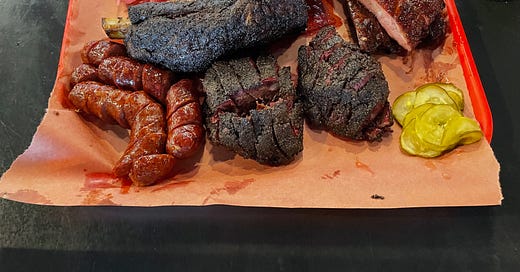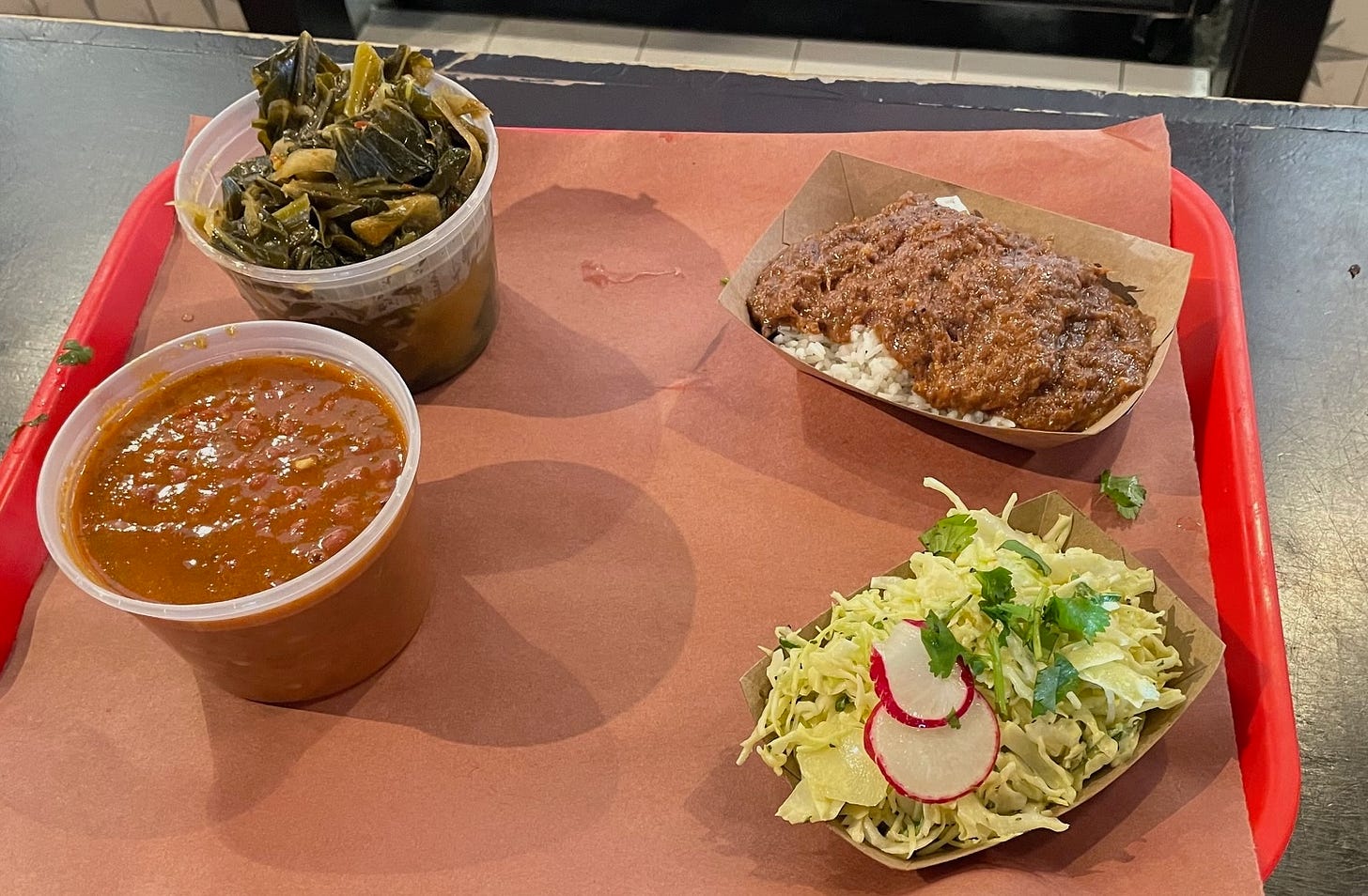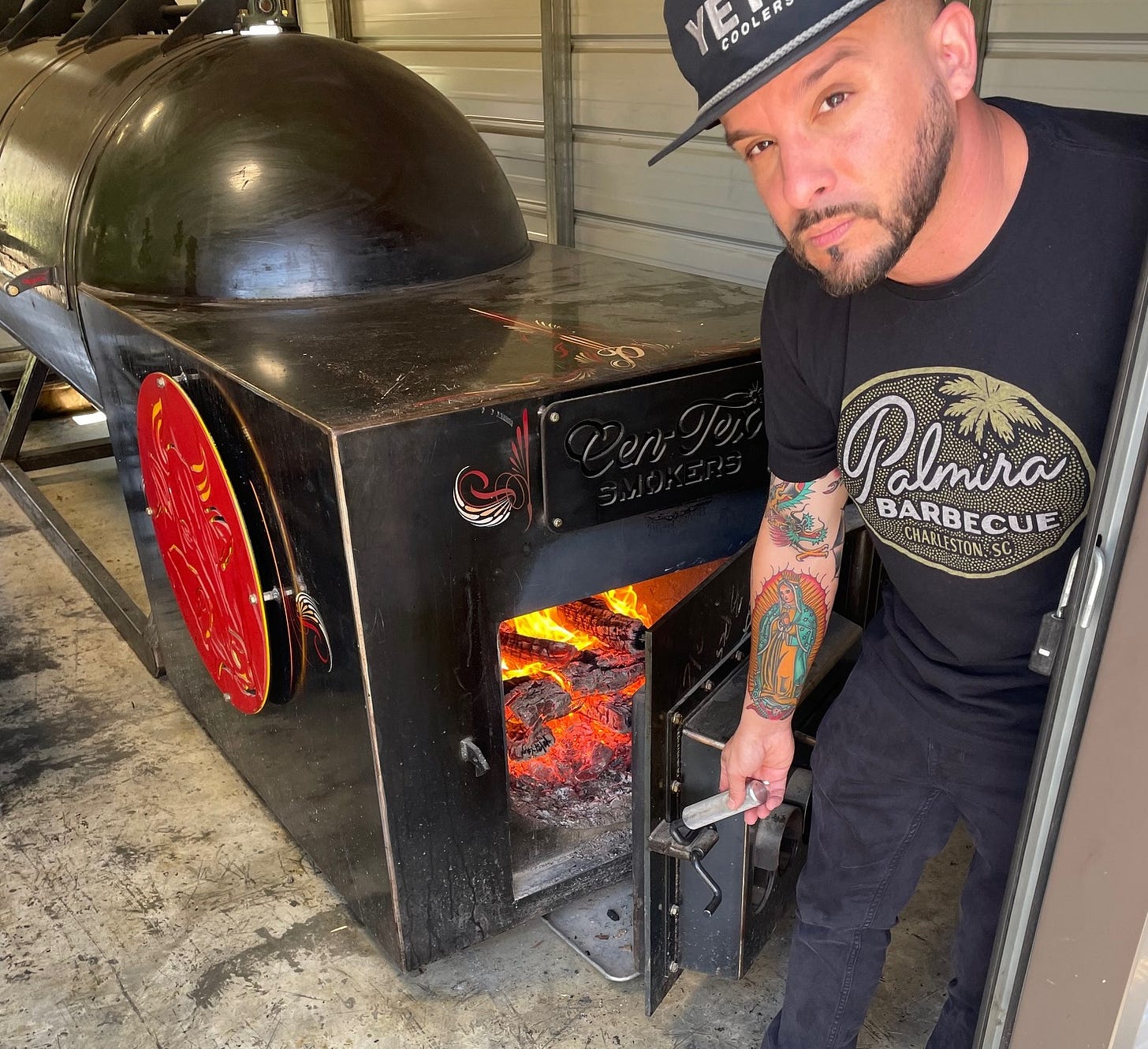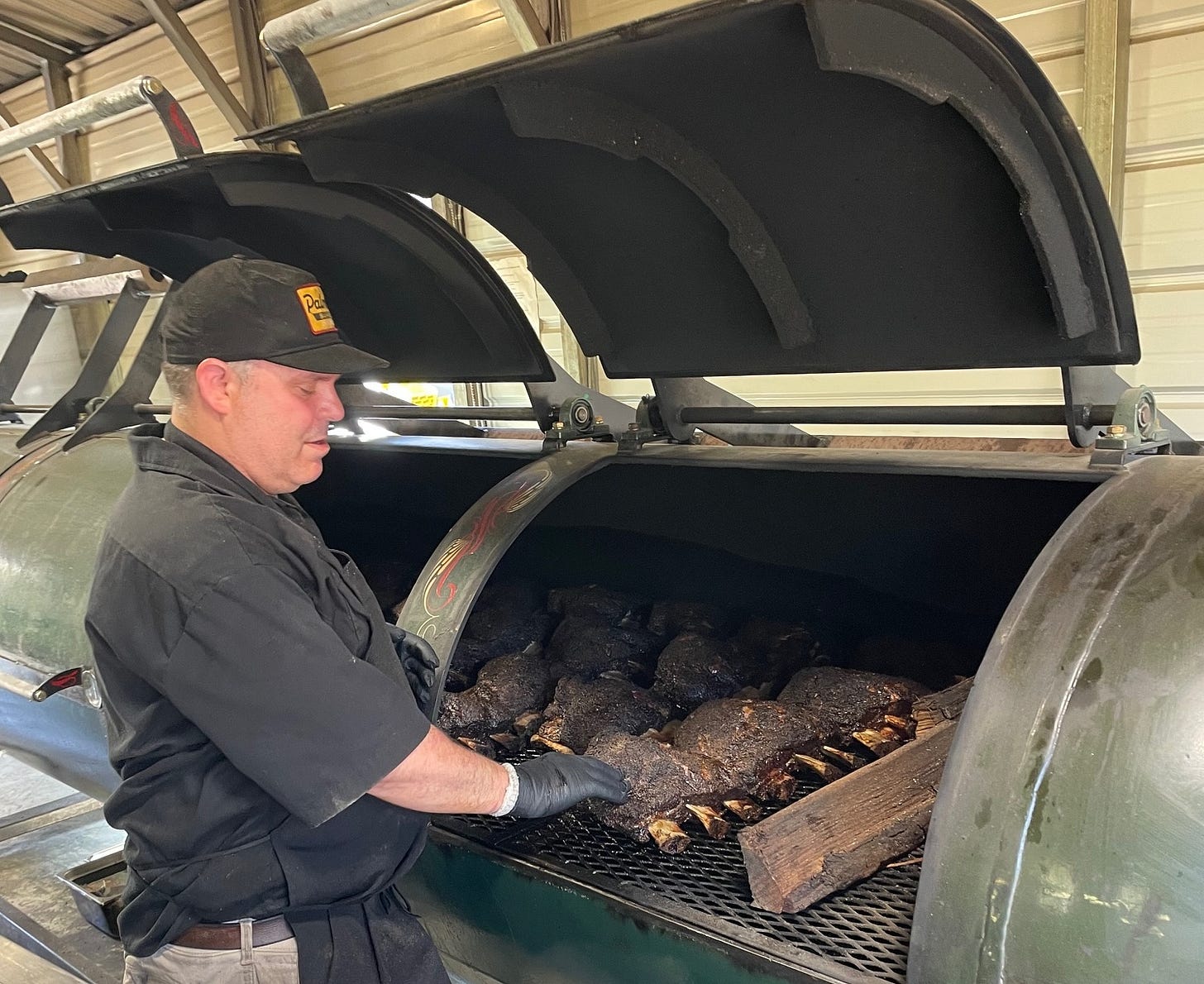The Best Texas-Style Barbecue Dish Ever?
At Palmira Barbecue in South Carolina, its Texas-style beef cheeks are amazingly rich, meaty, and smoky.
This week’s guest article is written by John Tanner, founder of John Tanner’s Barbecue Blog. John is based in Washington, D.C., and has been writing about barbecue joints, events, and notable people in BBQ since 2015.
I skipped breakfast in anticipation of Palmira Barbecue.
I had some things I had to take care of, and might have skipped it in any event, but on my last South Carolina trip, I’d found Palmira’s closed, doing an event. That was during their food truck days, when I was eager to try it with author and historian Robert Moss. He’d given it an enthusiastic recommendation, and when Robert Moss speaks, people listen. I certainly do.
Palmira now has a brick-and-mortar location at 2366 Ashley River Road, and so to Ashley Road I sped. Within the posted speed limit. Pretty much.
My group gathered outside before the 11:00 am opening, so eager were we. The doors opened and plagued locust-like, we poured in and started ordering. Palmira focuses on brisket, beef ribs, whole hog barbecue, and, last but not least (but first and foremost), beef cheeks. We ordered a lot of meat — a beef rib, some pork ribs, some pork, some sausage, and beef cheeks.
We also ordered some sides — slaw, beans, collards, and hash and rice.
Let’s cut to the chase. The beef cheeks were the best Texas-style barbecue I’ve ever tasted — and I’ve been to Snow’s and Terry Black’s and Smitty’s and Kreuz Market and the Original City Market in Luling, as well as some terrific places outside of Texas, like 2fifty, ZZQ, and Lewis.
Now I should explain that cheeks, when available, are the most flavorful part of an animal, whether cow, pig, or fish. If anything can outshine bacon, it’s guanciale. The animal’s cheeks sit there hugging the cheekbone, glorying in their marbling and succulence. Put those on a smoker and slow cook. They emerge as tender as a baby’s coo and incredibly rich, meaty, and smoky. These cheeks were paragons. I fear I ate more than my share.
That’s not to ignore the rest of the meal by any means. It was a lot of food, and outstanding food, at that. The pork — shoulder rather than whole hog today, as Palmira’s is picky about what it can get before it starts cooking — was as good as you will find at a beef-centric, Texas-influenced spot, and the pork ribs may have been the best I’ve had in South Carolina. The beef rib turns out to be their most popular item, and it’s certainly as good as Lewis’s or 2fifty’s — soft, tender, rich, and flavorful.
Let’s not forget the sides. The slaw was fresh, crisp, and mild. To be honest, I would have liked more sharpness to it to offset the deep richness of all that meat, a nice red slaw, for example. The greens had a good pork flavor, having been cooked in pork bone broth and some mustard for sharpness. They would have rivaled the great heritage collards at Bum’s but for the addition of some sugar.. The beans were excellent.
The star of the sides, though, was the hash and rice. It’s a traditional South Carolina food, originally made by cooking down the leftovers of a slaughtered pig — the head, liver, and lights — but now is almost all meat, and in Upland South Carolina, it’s made with beef. Kudos to Palmira for including it on their menu! A lot of the new, invasive places don’t offer it. Lewis and Rodney Scott’s eschew it. By failing to do so, they separate themselves from the sense of place that adds to the experience. It’s an important element of a meal, so well done, Palmira.
This was good South Carolina hash, a new variety for me with its distinctive vinegar sharpness. It had good meaty flavor with no scary liver notes, and it went well as a balance for the hyper-rich meat.
The genius, and I use that word advisably, behind Palmira is Hector Garate, a Puerto Rico native, who named the restaurant after his grandmother. Here he is, looking a bit Mephistophelean as he bent over the fire box, but his barbecue is heavenly.
He certainly has the formula for a great restaurant — good treatment of employees (wages and health care), great ingredients with partnerships like Brasstown Beef, Creekstone Farms, and Peculiar Pig Farms for prime meats that he only cooks if they meet his standards. If he can’t get a whole hog to his standard, he gets shoulders or butts that meet the mark.
Perhaps most important, he and his staff pay careful attention to the meat. There are no meat thermometers at Palmira. None. They pay individual attention to each brisket, each cheek, each pig. You tell when the meat is done, or whether you need more or less heat, by touching the meat.
It helps that Palmira serves about 30,000 pounds of beef cheeks every week. I guess that pretty well corners the market. Indeed, if I were selling beef cheeks or any other product, I’d want to sell it to Palmira, to someone who insists on buying the best and making it better.
Go to Charleston, and drive out to Palmira. Make it your first stop. Really.
John Tanner
Founder, John Tanner’s Barbecue Blog
Keep reading with a 7-day free trial
Subscribe to The Smoke Sheet to keep reading this post and get 7 days of free access to the full post archives.









